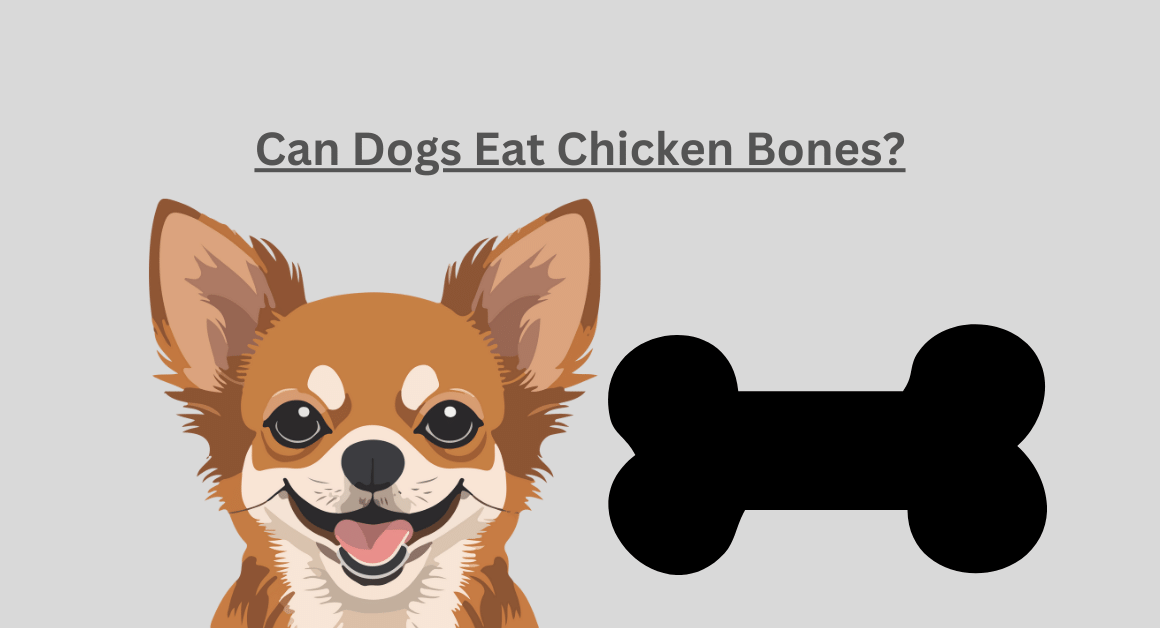We all love our furry friends, don’t we? Our dogs are not just pets; they are family members who bring joy, love, and companionship into our lives. And like any family member, we want to ensure they are safe and well cared for. One concern for dog owners is their diet, especially when feeding them bones. Today, we’ll explore a question that often pops up: Can dogs eat chicken bones?
Table of Contents
Understanding Dogs’ Digestive System
Before diving into the topic, let’s understand our dogs’ marvelous digestive systems. Dogs have a unique anatomy and digestion process, different from us humans. They have strong jaws and teeth designed to tear and crunch through bones and raw meat. Their digestive system is designed to handle a diet that includes bones, but there are certain factors we need to consider.
SEE ALSO: Can Dogs Eat Peanuts? in 2023
Risks of Feeding Dogs Chicken Bones
When it comes to chicken bones, there are some risks involved. One major concern is the potential for bones to splinter. Chicken bones, especially when cooked, can break into sharp fragments that seriously threaten your furry friend’s mouth, throat, and digestive tract. These sharp edges can cause lacerations, punctures, and other injuries.
Another risk is the possibility of choking. Due to their size and shape, chicken bones can easily get lodged in a dog’s airway, leading to choking. This can be a frightening and life-threatening situation that requires immediate attention.
Additionally, feeding dogs chicken bones can increase the risk of intestinal blockage. The bone fragments can get stuck in their digestive system, causing obstructions. Symptoms of an intestinal blockage include vomiting, diarrhea, abdominal pain, and even more severe complications if left untreated.
READ NOW: Can Dogs Eat Ginger?
Potential Health Risks and Complications
The dangers of feeding chicken bones to dogs don’t stop at the physical risks. There are also potential health risks and complications to consider. Sharp bone fragments can puncture the gastrointestinal tract, leading to internal bleeding and infections. These complications can be severe and require veterinary intervention.
Moreover, chewing on bones, including chicken bones, can result in dental problems. Dogs may experience broken teeth or injuries to their gums, which can be painful and require dental care.
Lastly, there is a risk of bacterial contamination, particularly in raw or undercooked chicken bones. Salmonella and other bacteria can be present, posing a threat to both your dog’s health and your own if you come into contact with contaminated surfaces.
SEE ALSO: Can Dogs Eat Beets?
Safe Alternatives and Precautions
Fortunately, there are safe alternatives to feeding your dog chicken bones. Rawhide bones and synthetic chew toys are great options that satisfy their natural chewing instincts without the risks associated with bones. These alternatives provide dogs with a safer and healthier way to exercise their jaws and clean their teeth.
When it comes to bones, it’s crucial to take precautions. Refrain from feeding your dog cooked chicken bones, as they are more prone to splintering. Instead, opt for raw bones if you still wish to provide them. Remember to supervise your dog while they chew and dispose of the bone properly once finished to avoid accidents and potential injuries.
READ ALSO: Can cats eat honey?
Conclusion – Can Dogs Eat Chicken Bones?
In conclusion, it’s best to avoid feeding dogs chicken bones due to the numerous risks involved. While dogs have a natural inclination to chew on bones, it’s essential to prioritize their safety and well-being. Splintering, choking hazards, intestinal blockage, potential health risks, and bacterial contamination are all valid concerns regarding chicken bones.
Explore safe alternatives like rawhide bones or synthetic chew toys to keep your furry friend happy and healthy. Always consult your veterinarian for personalized advice on your dog’s diet and chewing habits.
Remember, our dogs depend on us to make the best choices for their health and happiness. Let’s ensure they stay safe and enjoy their lives to the fullest.
SEE NOW: Can Cats Eat Raw Salmon?




